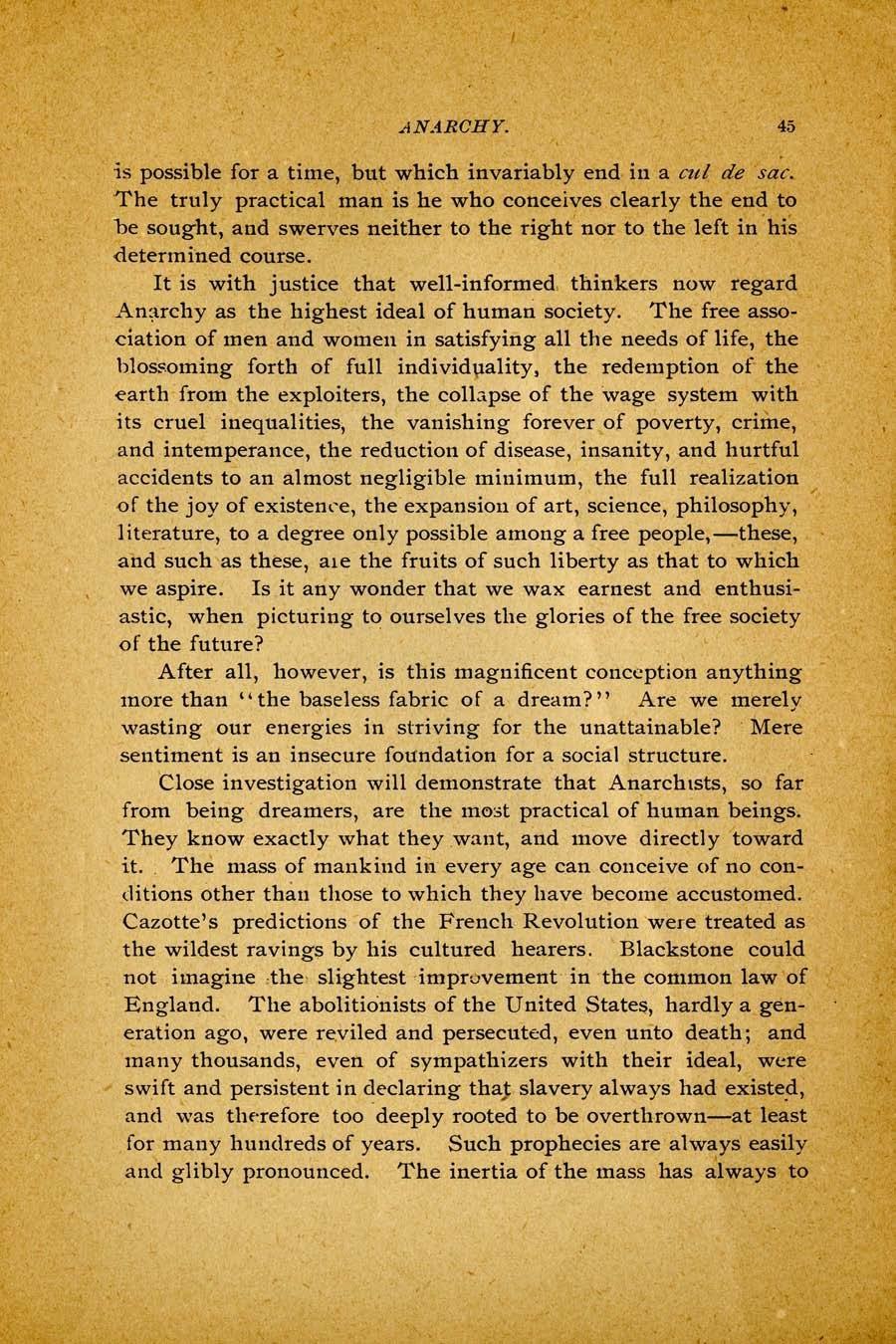is possible for a time, but which invariably end in a cul de sac. The truly practical man is he who conceives clearly the end to be sought, and swerves neither to the right nor to the left in his determined course.
It is with justice that well-informed. thinkers now regard Anarchy as the highest ideal of human society. The free association of men and women in satisfying all the needs of life, the blooming forth of full individuality, the redemption of the earth from the exploiters, the collapse of the wage system with its cruel inequalities, the vanishing forever of poverty, crime, and intemperance, the reduction of disease, insanity, and hurtful accidents to an almost negligible minimum, the full realization of the joy of existence, the expansion of art, science, philosophy, literature, to a degree only possible among a free people,—these, and such as these, are the fruits of such liberty as that to which we aspire. Is it any wonder that we wax earnest and enthusiastic, when picturing to ourselves the glories of the free society of the future?
After all, however, is this magnificent conception anything more than "the baseless fabric of a dream?" Are we merely wasting our energies in striving for the unattainable? Mere sentiment is an insecure foundation for a social structure.
Close investigation will demonstrate that Anarchists, so far from being dreamers, are the most practical of human beings. They know exactly what they want, and move directly toward it. The mass of mankind in every age can conceive of no conditions other than those to which they have become accustomed. Cazotte's predictions of the French Revolution were treated as the wildest ravings by his cultured hearers. Blackstone could not imagine the slightest improvement in the common law of England. The abolitionists of the United States, hardly a generation ago, were reviled and persecuted, even unto death; and many thousands, even of sympathizers with their ideal, were swift and persistent in declaring that slavery always had existed, and was therefore too deeply rooted to be overthrown—at least for many hundreds of years. Such prophecies are always easily and glibly pronounced. The inertia of the mass has always to
